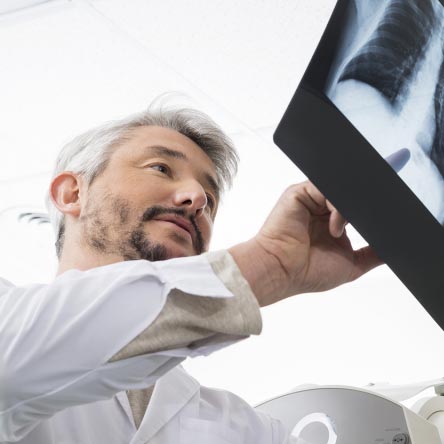The Challenge of Proving Medical Malpractice: How Hard Is It To Prove Medical Malpractice?
Introduction
Navigating the realm of medical malpractice can be as challenging as traversing a labyrinth. Patients who suffer due to healthcare provider negligence often find themselves grappling with a myriad of emotions—anger, confusion, and fear. When health outcomes go awry, how does one even begin to prove that a healthcare professional acted irresponsibly? The Challenge of Proving Medical Malpractice: Navigating the Complexities of Legal Evidence is about understanding this intricate web. In this article, we will explore the various facets involved in proving medical malpractice, emphasizing the importance of legal evidence and how medical malpractice attorneys play a pivotal role in guiding victims through these choppy waters.

Understanding Medical Malpractice
What is Medical Malpractice?
Medical malpractice occurs when a healthcare provider fails to provide the standard level of care, resulting in injury or harm to a patient. This failure can take many forms, including misdiagnosis, surgical errors, medication mistakes, and neglectful care.
Key Elements of Medical Malpractice Cases
Why is Proving Medical Malpractice So Challenging?
The complexity lies in establishing all four elements convincingly. Each component requires meticulous attention to detail and often extensive expert testimony.
The Role of Medical Malpractice Attorneys
How Can Medical Malpractice Attorneys Help?
Medical malpractice attorneys specialize in navigating these complicated cases. They gather evidence, consult with medical experts, and advocate on behalf of their clients throughout the legal process.

When Should You Consult with an Attorney?
If you suspect you have been a victim of medical malpractice, consulting with an attorney early on can help preserve evidence and strengthen your case.
Gathering Evidence for Your Case
Types of Evidence Required
To prove medical malpractice successfully, you'll need various types of evidence:
- Medical Records: These documents chronicle your treatment and are crucial for establishing duty and breach.
- Expert Testimony: Qualified professionals can attest to what constitutes standard care and whether it was breached.
- Witness Statements: Colleagues or family members may provide insight into the care you received or its effects on your life.
Importance of Timely Evidence Collection
Time is often critical in gathering evidence; delays may lead to loss or degradation of important information that could bolster your case.
The Challenge of Proving Causation
What is Causation in Medical Malpractice?
Causation links the negligent act directly to the injury sustained by the patient. Establishing this connection can be particularly challenging because multiple factors may contribute to a patient's condition.

Strategies for Proving Causation
Understanding Damages in Medical Malpractice Cases
Types of Damages Available
In medical malpractice cases, damages are classified into several categories:
How Are Damages Calculated?
Calculating damages involves assessing both tangible costs (like hospital bills) and intangible impacts (like loss of enjoyment in life).
Legal Standards for Medical Malpractice Cases
What Constitutes Standard Care?
Standard care varies based on geographic location and specific medical field but generally reflects what other competent providers would deliver under similar circumstances.
How Jurisdictions Impact Your Case
Different states have various laws regarding medical malpractice claims—including statutes of limitations—which can significantly impact your ability to file suit successfully.
Finding Expert Witnesses
Why Are Expert Witnesses Crucial?
Expert witnesses lend credibility by providing specialized knowledge that juries may not possess regarding complex medical issues.
How to Select the Right Expert Witness
When choosing an expert witness:
Preparing for Trial
Building Your Case Strategy
Before heading into trial, it’s essential to have a comprehensive strategy that outlines how you plan to present your evidence effectively.
Mock Trials Can Be Beneficial
Conducting mock trials can highlight potential weaknesses in your case before facing an actual jury, allowing adjustments as needed.
FAQ Section
1. What should I do if I suspect medical malpractice?
If you believe you've experienced medical malpractice, seek legal counsel immediately. Document everything related to your treatment and consider obtaining copies of your medical records for review by an attorney.
2. How long do I have to file a claim?
Statutes vary widely by state but typically range from one year to several years post-incident; consult a local attorney promptly for specifics pertaining to your situation.
lawyers for medical compensation3. Will my case go to trial?
Many cases settle out-of-court; however, if negotiations fail or if both parties cannot agree on compensation amounts, it may proceed to trial.
4. What if I'm partially at fault?
Most jurisdictions follow comparative negligence rules that allow you to recover damages even if you're partially responsible for your injuries; however, compensation may be reduced based on your level of fault.
5. Can I sue a hospital?
Yes! Hospitals can be held liable under certain circumstances—especially if negligence occurred within their facilities or among their staff members acting within their official capacity.
6. How much does it cost to hire a medical malpractice attorney?
Most personal injury attorneys work on contingency fees; meaning they only get paid if you win your case—typically taking around 33%–40% from any settlement awarded.
Conclusion
Navigating The Challenge of Proving Medical Malpractice: Navigating the Complexities of Legal Evidence requires more than just understanding legal jargon; it necessitates compassion coupled with expertise from skilled attorneys who understand both medicine and law intricately! Whether you're contemplating pursuing a claim or simply exploring options available after experiencing unfortunate outcomes due directly or indirectly linked back towards healthcare providers' actions—or lack thereof—know there’s hope ahead!
Remember—the journey may be fraught with challenges but armed with knowledge gained here today plus support from adept professionals along every step ensures success remains achievable despite obstacles faced!
This article aims not only at providing valuable insights but also empowering individuals facing daunting situations following adverse health incidents while navigating complex legal systems involving litigation against negligent parties involved—reminding everyone there's always light at end tunnel regardless how dark things seem initially!
This article provides general information and is not a substitute for legal advice; consult with experienced lawyers for personalized guidance
Attorney Advertising: The information contained on this page does not create an attorney-client relationship nor should any information be considered legal advice as it is intended to provide general information only. Prior case results do not guarantee a similar outcome.